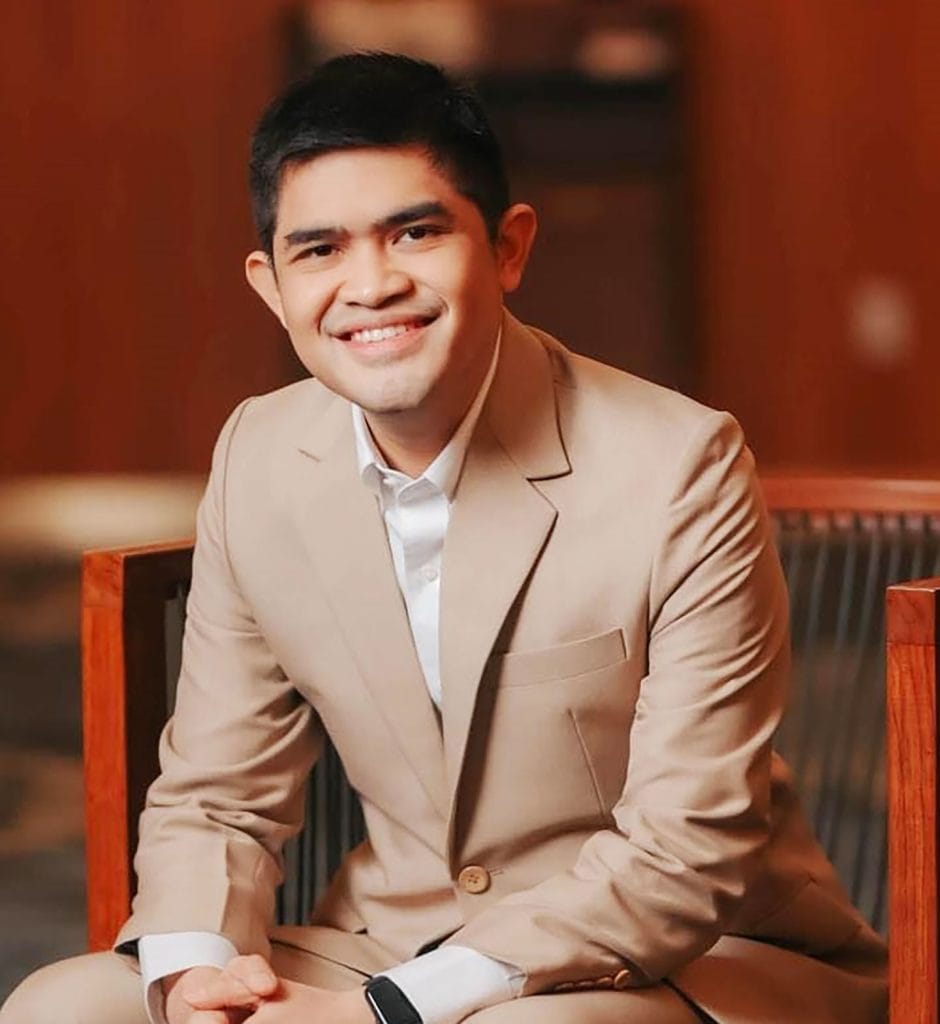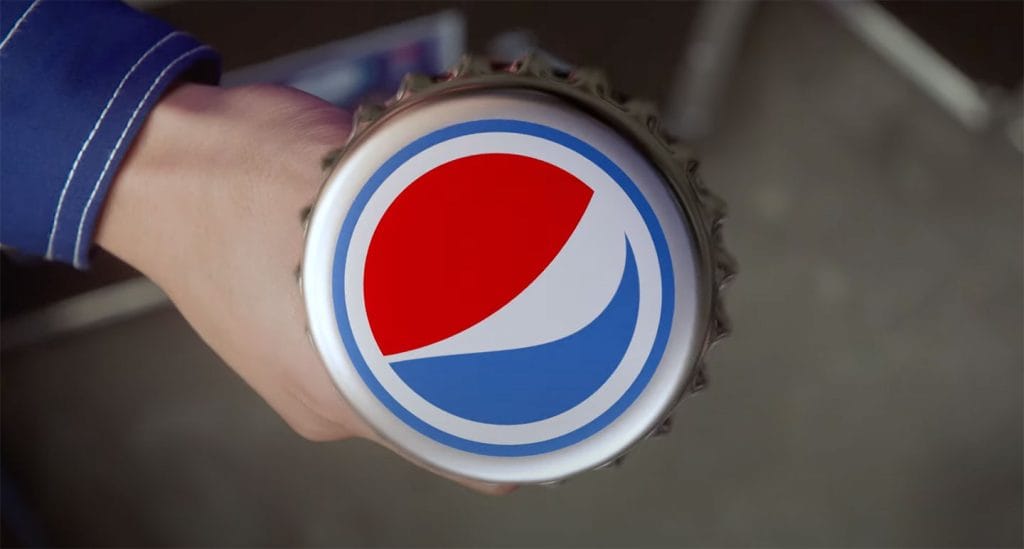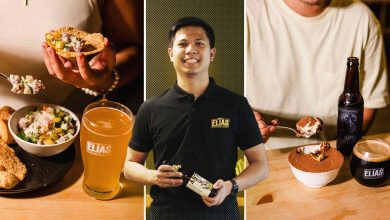MANILA, PHILIPPINES — “Great campaigns will come later; great products will come later. But what’s important is that every single person in the marketing organization has to be human-centric,” shared Ray Philip Pine, Marketing Director for Philippine Beverages at PepsiCo. As the global company’s local leader in marketing, Ray handles PepsiCo’s biggest beverage brands, including Pepsi, Mountain Dew, Gatorade, and Sting. Each household name has allowed him to exponentially grow as a marketer, but the biggest contributor to his knowledge today is his life experience.
The beginning of his journey into FMCG
Ray has built an extensive career that began in the dairy industry before moving onto laundry care and finally to beverages at PepsiCo. “I wanted to try different things and gain different skill sets. I realized that marketing is the one that spoke to me the most. I felt it was a good balance of the science of business and the heart of it, which is all about understanding people,” he explained.
To him, the technicalities of business, such as strategy and data, mixed very well with the humanity of understanding consumers, and this made for a very good intersection in marketing. This eventually led him to the world of fast-moving consumer goods, where he has been making mark after mark in his illustrious career. “I wanted to always create something that you can see in the supermarket, something that you can see that people are using.”

The importance of understanding your market
With his previous career experience helping pave the way to where he is now, Ray emphasized that even though he has handled products of varying kinds, he was never part of any of his brands’ target market. “I’m not the mom who is trying to give milk to her kid. Transparently, I’m also not the one doing the laundry at home. And I’m neither an athlete nor a Gen Z, which we’re now marketing to at PepsiCo beverages. But I think what allowed me to navigate through those different categories is that I really built that muscle on human empathy,” he reflected.
Ray contemplated that one of the biggest roadblocks for fellow marketers was their own bias and personal judgment. “That hinders us from understanding the real consumers we’re trying to reach,” he clarified. He voiced that the way he’s always navigated this situation is through talking less and listening more. “I suspend my judgment and ensure that I try to understand the consumer first. It’s that depth of consumer understanding and that skill of human empathy, I think, that allowed me to be very sharp on the insights on what the unmet consumer needs are and create marketing programs and solutions that address those needs.”
This aptitude towards empathy led Ray to a marketing epiphany that he still practices today: “Maybe the biggest consumer learning that I had was how to not look at people as your consumer, but look at them as a human first. It’s all about human centricity.” He emphasized that although there are different kinds of consumers, they’re also only humans at the end of the day. “Understand them — their feelings, their desires, their needs,” he went on to describe that from there, marketers should discern what needs their consumers have and what role their brand can take on in order to fill that gap.
Fitting in with the right crowd and company
Ray’s perspective on marketing and how deep he wanted to dive into the field opened up his path to PepsiCo. “What really attracted me to the company is the ‘challenger mindset.’ Whether we are a market leader in a brand like Gatorade or a challenger brand like Pepsi, the constant approach and philosophy that PepsiCo takes is that we always have to have a challenger mindset.” Ray explained that the company’s challenger mindset is all about sharply positioning brands to be very distinct and to stand out in their field or taking structural changes and turning them into an advantage. “I think it keeps you on your toes — it pushes you to a mindset of learning and growth.”
Beyond the hard skills of obtaining a challenger mindset, the company culture also presented Ray with values that he personally upholds — inclusivity and diversity. “It’s very important for me to be in a place where everyone and anyone can succeed. What matters more are your skills and your learning aptitude, more than who you are. The company’s inclusive enough to be able to accommodate you, create a work environment that works for you. Ultimately, what’s important is that you are able to put forward meaningful and impactful work for the company,” he shared.

Pressing on the topic of inclusivity, Ray is an open advocate for it. He expressed that he, himself, is an introvert. He’s used to observing people and learning about them, rather than being the one being spectated. “I’m not the regular marketer you’d meet,” he said. However, he has used this trait as leverage to better understand consumers. “I’ve always felt, as a personal belief, that you need to be able to build a diverse team in order for you to have that wealth of ideas. It’s important that we all stay curious with our consumers, even if we come from different backgrounds.”
He also divulged a more personal reason why he champions inclusivity for all: “I’ve survived cancer myself. I have a particular lifestyle that I have to live by, so it’s very important for me to practice what I preach. I want to make sure that whatever your personal circumstance is, it is not a hindrance for you to succeed and get celebrated in the workplace. So I think my early experience with cancer, plus my innate unique personality versus a prototypical marketer, fuel that belief.”
Another prong to his point in implementing inclusivity is the future of the workforce: today’s fresh graduates. He stressed that diversity and inclusion are very important for them, whether it’s about their gender, race, or personality archetype. “People want to be true to themselves. They want to be authentic. I think it’s important that, as employers, we allow and celebrate that. Everyone has a right to be in the workplace and to excel in the workplace.”
Beyond metrics as milestones
PepsiCo’s beverage brands have undoubtedly achieved one milestone after another under Ray’s leadership. Upon being congratulated on these achievements, he only gave a curt laugh and humbly gave thanks, then redirected the credit and attention to his hard-working team. “Hand on my heart, it is the team. With such a breadth of portfolio, not one person would be able to create that transformation by himself or herself, so it’s really the team,” he enthused.
As a leader, it’s only natural to give credit where it’s due. But it’s also only human to feel proud of such achievements, whether from a personal standpoint or a professional one. “I think what makes me so proud is how I am able to nudge young marketers to be more human-centric, to have more empathy. I hope the works are testaments to that progress. I think as a leader of the marketing organization, the higher you go, the more you realize that there are less things that you do yourself. A big part of your job is how you train, hone, and coach people so that you can influence them toward the direction or destination you want the organization to go. And, again, for us, it’s that simple thing of changing from brand-centric to consumer-centric to human-centric over time that created the progress that you’re seeing in the works of the brands today.”
To further express pride and give rightful credit to his team’s efforts, Ray shared the biggest and most recent improvements their brands have gone through:
Pepsi
“At Pepsi, we’re always attuned to the younger generation,” Ray explained on why Gen Zers are their main target market. He shared that through listening to their consumers, they’ve learned that Gen Zers have a desire to break free from conventions in pursuit of enjoyment. “They’re not afraid to put themselves out there. If the younger generation is changing towards that, then the brand has to also evolve towards that pulse. And that’s the genesis of why we had this rebrand for Pepsi after 15 years.”
PepsiCo Philippines is the first market outside the US to flaunt the new look. As for the brand’s local campaign, the tagline “Mas Masarap Maiba” was created as an anthem to celebrate young people’s desire to be who they are. “Because it’s truly ‘Mas Masarap Maiba,’ it feels better to be who you are and to be different. You don’t have to conform to social conventions and social norms. What’s important is your pursuit of authenticity and enjoyment,” Ray emphasized.
Gatorade
Gatorade has been a longstanding partner of pro athletes, but its recent efforts were visibly geared towards a different audience. “Because we’re the market leader, the job to be done is to fuel more growth in the category. When we talked to people, the resounding barrier that we heard was that Gatorade is for pros, not for average Joes. So while we’ve created a strong legacy of fueling the greatest athletes, we asked, ‘How do we resonate more with the average Joes?’”
“If you look at ‘Gatorade No Sugar Sweat Fest,’ it’s all about celebrating people’s desire to sweat — not because they need to compete at an athletic level, but because they want to exercise.” Ray and his team then wondered how to get today’s fitness enthusiasts in a single gathering. The answer: go big or go home. “Breaking a world record seemed like the right thing to be done.” The on-ground effort succeeded to break the Guinness World Record for the “Largest Aerobic Weight Training Class,” with 1,308 participants. The brand wanted to introduce Gatorade No Sugar in a massive way to fitness enthusiasts by emphasizing the clearest distinction in this latest variant: it gives people all the electrolytes of Gatorade, but without the sugar and the calories. “If you’re trying to lose weight or manage your health, you don’t need those calories or sugar. Meanwhile, athletes might need that sugar for them to compete and perform at the peak level.”
Sting
Sting is one of PepsiCo’s fastest-growing brands today, and for good reason. It revolutionized how we perceive energy drinks and the people that actually need them. “If you look at energy drinks, they have been marketed with a tough guy trope or for people who need all the physical strength. It’s right; that’s true,” Ray confirmed. However, PepsiCo observed there are other people who could use a boost as well.
Utilizing PepsiCo’s challenger mindset, Ray and his team set out to challenge the category norms and depict a younger, more fun, and inclusive persona of energy. “Again, credit to the entire team behind it,” he expressed in humble gratitude. He went on to share that in urban areas, energy doesn’t always equate to just a physical need but also a mental one. He cited the typical BPO employee as an example — they’re mostly sitting at their desks, but they have a huge need to stay mentally alert because they could be on the night shift or work long hours. He also cited university students who pull all-nighters and need to stay mentally sharp for school. “They’re not drinking energy drinks. They’re consuming beverages that do not really give them the right amount of energy to fulfill those tasks. So we said, ‘How can we give that energy to them, and do that in a way that speaks to them and resonates with them?’” Through this point of view, they came up with the campaign “Hataw ang energy sa mind at body” which Ray explained as broadening the dimensions of energy beyond the physical.
Mountain Dew
Known for its neon green hue and electric visuals, Mountain Dew is a crowd favorite among adrenaline junkies and adventure seekers. But its recent campaign effort has put the brand’s name to good use for a whole community — “Project Re-Dew.” To aid the beautiful seascape of Siargao after a devastating typhoon, Mountain Dew and creative agency BBDO Guerrero created scrap boards made out of typhoon wreckage and melted Mountain Dew PET plastic bottles as resin.



“I want to give credit to the team that worked on it. Honestly, I’m really lucky to have inherited iconic brands as I came in. In fact, Mountain Dew is our biggest brand for Philippine beverages,” Ray imparted. “We wanted to bring out that purpose of adventure in a deeper way to the Filipino audience. When you talk about fostering that spirit of adventure, there is an area in the Philippines where that is challenged and has been greatly devastated by typhoons. In line with the purpose of promoting and rekindling that spirit of adventure, how do we then use our iconic neon colors and integrate that into a beautiful work of art as scrap boards, and make that a tool to raise funds to help rehabilitate Siargao?”
“At the end of the day, it’s great for us to do good in society. That’s our role as brands — we need to do good. But I think the challenge is how do you do good that is authentic to your brand purpose? That’s what we ensured in Project Re-Dew.”
What’s next for Ray Pine
With all these great accomplishments under his belt, Ray has proven to be a shining beacon to the young marketers and would-be directors who would follow in his footsteps. While the next great adventure is yet to present itself to him, Ray already has his eyes set on his upcoming objective. Speaking with his business hat on, he shared that the company’s goal is to become the fastest-growing beverage company in the country. But he hasn’t forgotten about his own target as the head of marketing: “It’s really all about building the next generation of marketing directors. We have an amazing set of talents here in PepsiCo, and what I want to do is constantly build that. I want them to look back and say that at one point, they all started handling beverage brands in PepsiCo.”
On a wider scale, Ray admits he has a grander scheme that he wishes to put into play. “I want to put Filipino creativity on the map. If we can win a Grand Prix and Cannes Lions, I think that is a good testament to pushing the highest bar of creativity. While we might feel good about our work in the country, if you look at the global stage, the standards are a lot higher. Creativity is a lot more dynamic. And I think Filipinos have what it takes to take our creativity to the global stage.”








